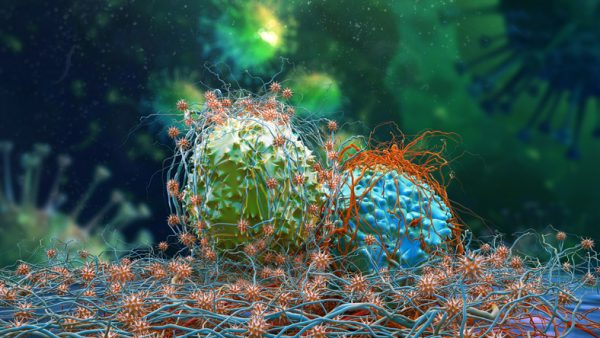
A company developing a form of cancer immunotherapy using genetically engineered viruses and partnered with Merck & Co. has closed a $22 million round of funding.
Santa Ana, California-based Cold Genesys said Monday it had closed the Series C funding round. Lead investor ORI Healthcare Fund led the round, with participation from Perseverance Capital Management.

With the Rise of AI, What IP Disputes in Healthcare Are Likely to Emerge?
Munck Wilson Mandala Partner Greg Howison shared his perspective on some of the legal ramifications around AI, IP, connected devices and the data they generate, in response to emailed questions.
The company plans to use the money for continuing the development of its oncolytic immunotherapy, CG0070, which has completed a Phase II study in non-muscle-invasive bladder cancer, also known as NMIBC.
CG0070 is based on a modified common cold adenovirus, which contains a promoter specific to the cancer and a GM-CSF transgene. It is designed to replicate inside the tumor’s cells, causing them to die. When they rupture, they release tumor-derived antigens and the GM-CSF, which thus stimulates a systemic anti-tumor immune response via the body’s own white blood cells.
The mechanism of action is similar to that of an approved oncolytic virus therapy, Amgen’s Imlygic (talimogene laherparepvec), which the Food and Drug Administration approved in 2015 for treatment of melanoma that has recurred after initial surgery, but can no longer be surgically removed. However, Imlygic has not been shown to improve overall survival.
Like CG0070, Imlygic has a GM-CSF gene added, but unlike Cold Genesys, it uses a herpes virus instead of a common cold virus.
CG0070 will also be explored in muscle-invasive bladder cancer, in combination with a monoclonal antibody targeting CTLA4. The company is developing a CTLA4 antibody in-house, CG0161. Bristol-Myers Squibb has an approved drug with the same target, Yervoy (ipilimumab).
In November, the company announced a partnership with Merck to combine CG0070 with the PD-1 checkpoint inhibitor drug Keytruda (pembrolizumab) in a Phase II study, also in NMIBC. The trial is enrolling patients whose disease is unresponsive to bacillus Calmette-Guerin, who represent an unmet medical need, with no treatment approved by the FDA for about 20 years. According to the ClinicalTrials.gov database, the completed Phase II study of CG0070 was also in patients who failed on BCG treatment. Keytruda is approved for certain patients with urothelial carcinoma, the most common form of bladder cancer.
Photo: nopparit, Getty Images














